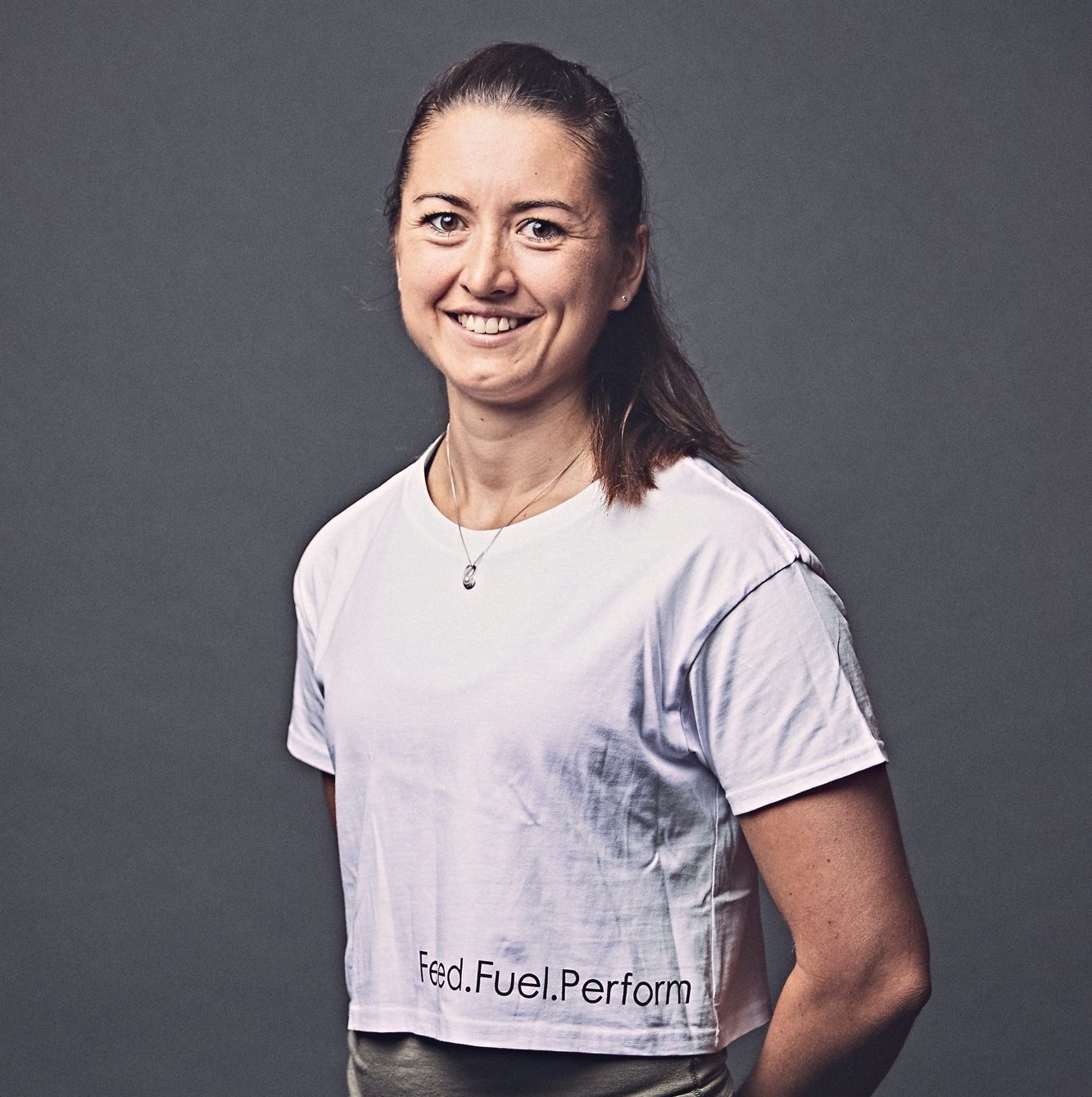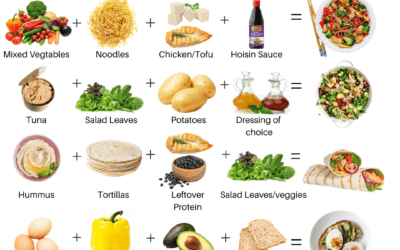
DR. SINEAD ROBERTS, PHD.
Owner & Performance Nutritionist
We are quite literally what we eat. Every single part of our body, and every bit of energy we use to walk and talk and do sports and live has been produced from something we have shoved in our face at some point in time.
When we think about it like that, it becomes pretty obvious that what we eat has huge potential to impact health and performance. In life and in our sport.
The body is actually phenomenal at survival. We can underfeed it, overfeed it, miss important nutrients, and it still survives for decades upon decades. But there is a difference between surviving and thriving.
So what can we do with our food to thrive, and optimise performance both inside and outside of the gym?
Key Components of Diet & How to Get Them:
CALORIES
Bodyweight is determined by calories in versus calories out. Yes, the amount and type of calories we eat can have a small influence the amount of calories we actually absorb from the food, and the calories we burn. But ultimately it is calories in versus calories out.
However, calories are just a function of the total amount of protein, fats and carbohydrates that we eat. These are the components of our food that have energy (measured in calories). They each have different roles in the body, and this is particularly for athletes or people who train frequently. So it can be more helpful to focus on how much of each we need, rather than just the ‘calories’ we are eating …
PROTEIN
Unlike fats and carbs, protein isn’t really used to provide energy in the body. It is the building block of the body … 70% of the dry weight of muscle is protein!!
The purpose of training is to induce (appropriate!) stress and damage to the body, to trigger it to rebuild, repair and get fitter, faster and stronger. As protein is the building block of the body, so getting enough protein is a key part of that.
Plus, unlike fats and carbs, protein is not stored in the body. So that means we use or lose it. And so THAT means we need to eat it in sufficient quantities regularly (i.e. in every main meal and snack) so our body can repair and recover from life and training. When we say ‘sufficient’, we think 20g of high quality protein is the minimum the body requires. So we want at least this in every meal.
But of course we don’t just eat ‘grams of protein’. We eat food. So what does this look like in terms of food? At least a handful of a high protein food 4-5 times a day, e.g. meat, fish, dairy, eggs, mycoprotein, legumes + grains / corn / nuts.

CARBS
The primary energy source for exercise above moderate intensity! So if we want to train hard and push our body to become the fittest, fastest and strongest we can be then we need carbohydrates to fuel that. As well as to provide energy to recover, repair and refuel from that training. A very low carbohydrate diet combined with high intensity, long duration and / or strength training can expose us to risk of injury and illness as the body just does not have what it needs to function in these conditions.
How much? It depends how much you train and how active your lifestyle is outside of training. At the very least a big handful of complex carbs (e.g. oats, bread, pasta, rice) around each training session. And then test it: add some more to your diet … do you start to perform better, feel better, build a leaner physique? If so keep it in, and try adding some more again. And so on!
FATS
These are the primary energy for mooching around, i.e. low intensity activity. Plus they provide the essential fat soluble vitamins for health and performance (more on those below). So we need enough in our diet to ensure that we can get enough of these vitamins, assuming we are eating high quality (vitamin rich) fats. We typically say that fats should be at the very least 20% of our total daily calorie intake, and ideally in the 25-30% for most athletes.
Great vitamin and mineral rich fat sources include: nuts, seeds, full fat dairy, oily fish, higher fat cuts of meat, avocado, and coconut.
VITAMINS, MINERALS, OTHER MICRONUTRIENTS & FIBRES
It is easy to get so caught up in the macros that we forget about micronutrients and fibres. But without these we can’t access the energy or building blocks from food effectively, or maintain health. The lower the calories in your diet, the higher quality (vitamin, mineral and fibre content) your foods need to be to ensure you are getting all you need … because you are eating fewer foods in which to get them all from.
Practically speaking, eating a range of whole foods including different fruit, veg, protein, fat and carbohydrate options that span ALL the colours of the rainbow is going to get you a fair way towards your needs.
Food Beyond Physiology
I have focussed on the physiological role of food, i.e. what our body needs to perform at its best. But food has a psychological and social role too. It is something we have to do multiple times a day, and something that is at the centre of many of our social lives. And that role is very important too!!
For an elite athlete where winning is achieved by margins, nutrition is one key part of the jigsaw and there may be less flexibility – at least in competition season – for not hitting what the body physiologically needs 90% of the time. But even then I would argue that enjoying food so that it reduces rather than adds to the list of things the athlete is worrying about is a big factor in long term success!
For the rest of us, we have more margin for flexibility. We might not need to give it as much focus. We might want to. But we don’t have to. We can still eat for health and good performance, with less attention to detail. If we choose to head out over Christmas for many a huge meal with barely a whiff of veggies or protein, and maybe one or many glasses of wine it won’t kill us (unless we try and then get up at 5am for a spicy workout …!). We simply prioritise hydration, protein and veggies at the next opportunity and carry on, having very much enjoyed some down time and fun!!

In Summary …
Your diet has huge potential to support health, performance and body composition. And each of these elements is interlinked. It is not about being ‘perfect’ with diet (this concept doesn’t exist), but it is about understanding where your priorities lie and how to get in the food that aligns with those priorities.
To learn more about fuelling for your life and sport, or to work together, check out the blogs and services at www.feedfuelperform.com, or my Instagram @sinead.feedfuelperform.